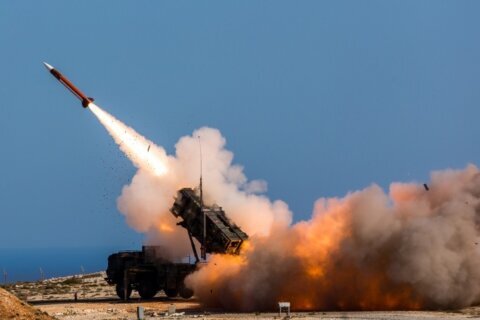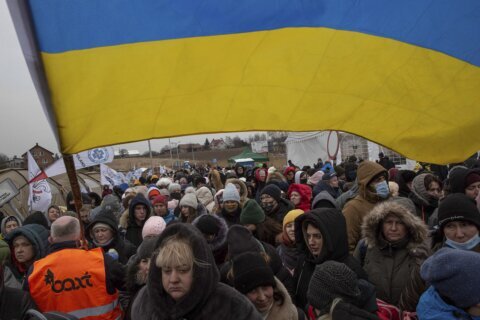GENEVA (AP) — The Swiss financial markets watchdog said Friday that Sberbank, one of Russia’s largest banks, is selling its Swiss subsidiary, which had come under pressure because of international sanctions on Russian interests over the invasion of Ukraine.
Sberbank (Switzerland) AG, which focuses on trade finance in commodities, was already facing liquidity problems after a first round of Western sanctions hit Russian interests earlier this year. Then, last month, Switzerland’s executive branch froze the bank’s assets and banned it from providing any funds, resources or technical services following a new round of sanctions.
FINMA, the Swiss markets authority, said in a statement Friday that it had lifted “protective measures” — mainly to protect clients — on Sberbank so that it can be sold to Groupe M3, a diversified company that has holdings mainly in the real estate, hospitality and health care sectors.
“FINMA is following the transaction closely and has temporarily lifted its protective measures at Sberbank (Switzerland) AG so that the transaction can be carried out,” it said in a statement. “This is also done with the consent of the authorities responsible for sanctions.”
FINMA said the “resized” bank will now operate under a new name, TradeXBank.
Groupe M3 confirmed the sale in a statement. Terms of the sale were not disclosed.
In an interview with Swiss newspaper Le Temps published Friday, Groupe M3 President Abdallah Chatila said he saw a “good opportunity” when the opportunity to buy the Swiss subsidiary of Sberbank emerged in May through a contact of his.
Chatila, who made headlines after buying up Nazi memorabilia at auction to keep it out of the hands of neo-Nazis, said authorities including the U.S. Treasury Department’s Office of Foreign Assets Control, which oversees U.S. sanctions, had given a “green light” to the deal. The Treasury Department declined to comment.
He was quoted as saying that Sberbank Switzerland itself was not targeted by sanctions. He said it generated about 3 billion to 4 billion Swiss francs in revenue annually before the sanctions, but Groupe M3 had been forced to hand over 1.5 billion francs worth assets under management to customers who sought them back as part of the purchase.
Copyright © 2024 The Associated Press. All rights reserved. This material may not be published, broadcast, written or redistributed.







